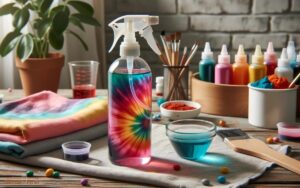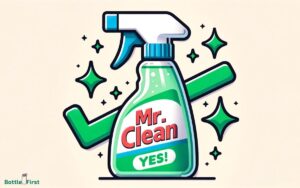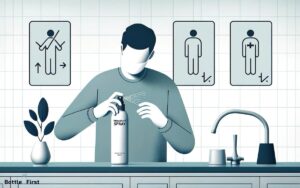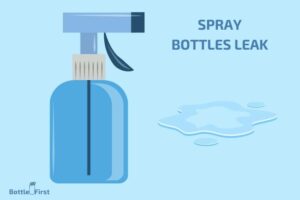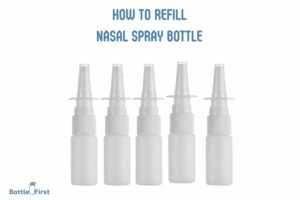Why Do Spray Bottles Stop Working? Explained!
Spray bottles may stop working due to various issues such as clogging, damaged components, or air pressure problems.
Regular maintenance and proper usage can prevent or resolve these common issues, ensuring the spray bottle functions effectively.
When a spray bottle stops functioning, it’s usually due to:
For example, a bottle used for oil-based substances may become clogged more quickly than one used for water.
Keep your spray bottles in top shape with regular cleaning and avoid liquids that could cause blockages or damage.
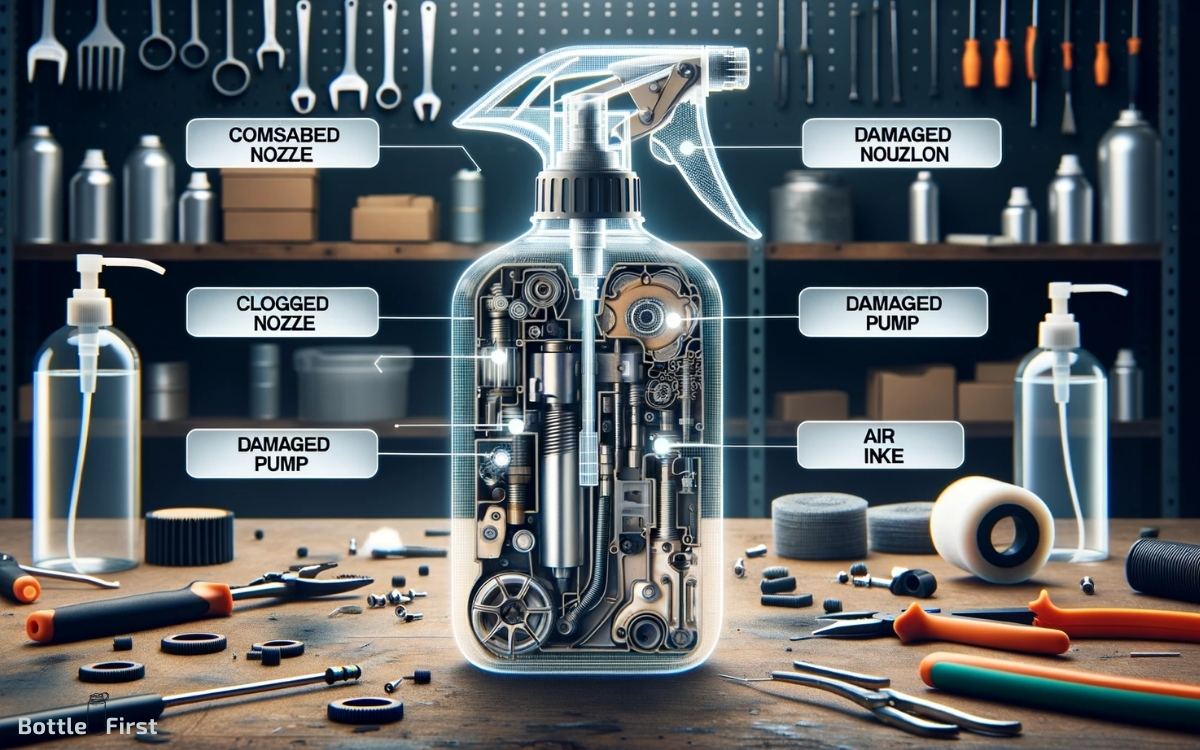
Key Takeaway
Internal Clogging
If you regularly use spray bottles, you may have noticed that they sometimes stop working due to internal clogging. This clogging occurs when residue from the liquid being sprayed builds up in the nozzle or tube, obstructing the flow of the liquid.
The most common culprits for this clogging are mineral deposits from hard water, dried-up particles from the contents of the bottle, or a combination of both.
To prevent this issue, it’s essential to clean the spray bottle regularly, especially if it contains substances prone to leaving residue. Additionally, using filtered or distilled water can help reduce mineral buildup.
Understanding the causes of internal clogging can help you maintain your spray bottles and ensure they continue to function effectively, saving you time and frustration.
Wear and Tear
To continue, as spray bottles are used over time, wear and tear on the internal components can lead to decreased functionality and eventual failure.
The following factors contribute to wear and tear:
- Friction: The continuous movement of the pump mechanism against the walls of the bottle causes friction, leading to wear on the components.
- Corrosion: Exposure to liquids, especially those containing harsh chemicals, can cause corrosion of the internal parts, reducing their effectiveness.
- Pressure Changes: The constant pressure changes within the bottle, as it’s squeezed and released during use, can weaken the internal components over time, affecting the spray function.
Understanding these factors can help you take better care of your spray bottle, potentially extending its lifespan and ensuring optimal performance.
Faulty Nozzle
Have you ever wondered why your spray bottle’s nozzle seems to malfunction despite regular use and maintenance?
The most common reason for a faulty nozzle is clogging. Over time, residue from the liquid inside the bottle can build up and block the small openings in the nozzle, disrupting the spray pattern.
This residue can be caused by using thick or viscous liquids that leave behind deposits, or by not properly cleaning the nozzle after each use.
To prevent this issue, ensure that the nozzle is cleaned regularly with warm, soapy water and a small brush to dislodge any buildup.
Additionally, using a dedicated cleaning solution specifically designed for clearing nozzle blockages can help maintain proper functionality.
Air Pressure Issues
Experiencing erratic spray patterns or a complete lack of spraying could be attributed to air pressure issues within your spray bottle.
Air pressure problems can disrupt the functionality of your spray bottle, causing frustration and inconvenience.
Here are some common air pressure issues to be aware of:
- Clogged Nozzle: Accumulated residue or debris can block the nozzle, leading to inconsistent spraying.
- Loose Pump Assembly: A loose or improperly fitted pump assembly can result in air leakage, affecting the pressure within the bottle.
- Over-pumping: Excessive pumping can cause air to build up in the bottle, leading to pressure imbalances and inconsistent spray patterns.
Understanding and addressing these air pressure issues can help restore your spray bottle’s functionality, ensuring a reliable and consistent spraying experience.
Chemical Reaction
If you notice a change in the consistency or color of your spray bottle’s contents, it may indicate a chemical reaction occurring within the bottle, which can further impact its functionality.
Chemical reactions can be triggered by various factors such as exposure to light, heat, or incompatible chemicals.
For instance, if a cleaning solution isn’t compatible with the material of the spray bottle, it can lead to a chemical reaction that alters the properties of the solution and affects its ability to be sprayed effectively.
Additionally, certain ingredients in the solution may react with the air or moisture, causing a change in the formulation.
To prevent chemical reactions, ensure that the spray bottle is used for its intended purpose and that the contents are compatible with the bottle’s material to maintain its optimal functionality.
Conclusion
When your spray bottle stops working, it could be due to:
- Internal clogging
- Wear and tear
- A faulty nozzle
- Air pressure issues
- Chemical reactions
Taking proper care of your spray bottle and regularly cleaning and maintaining it can help prevent these issues.
Remember, a stitch in time saves nine when it comes to keeping your spray bottle in good working condition.

